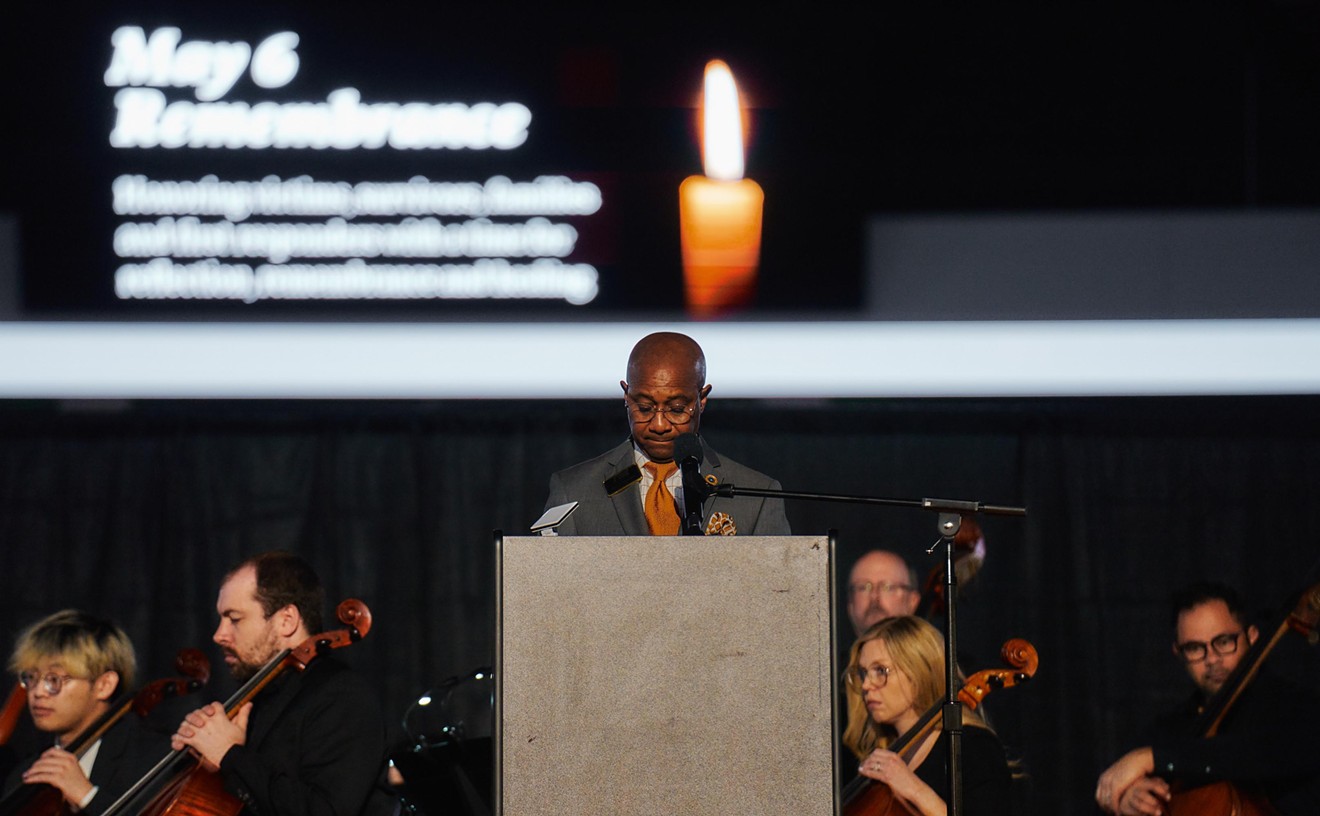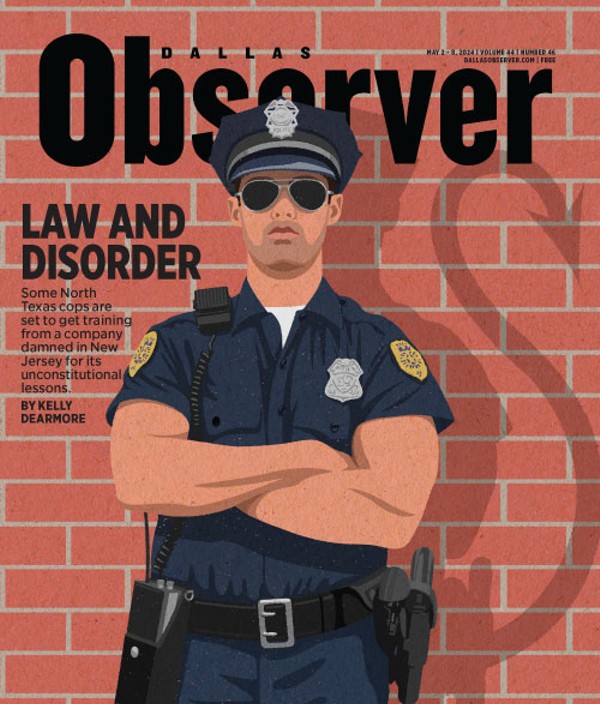Some have been here since midnight, their jackets wrapped tight, stomping their feet to stay warm and awake. The elderly and the young take turns on the few folding chairs some of the families brought to make the long hours easier to bear. Some parents have left their children sleeping inside cars in the crowded parking lots and check on them periodically. A few sit or crouch on the sidewalks. All are sleepy and tired of the wait.
Everyone here is waiting for a chance to ask INS officials a question, pick up a form, pay a fee, or turn in a form--quick, easy cases that can be taken care of in a minute or two. They all tell the same story: For a chance to get the form or the stamp they need, they are told, they must come early--as early as midnight or 1 a.m.--and get in line.
The INS opens at 6:30 a.m., and one by one the four or five hundred who get here first step into the building, through the metal detector, and up to the guard who hands them a numbered ticket. Ticket in hand, they can sit down inside and wait to see one of the five available immigration information officers. Those who just want to pick up a form are given a ticket to go stand in the form line and wait some more. Usually the sought-after numbers run out around 10:30 a.m., and those without tickets are told to come back tomorrow.
Earlier tomorrow.
Although the fees charged for all INS services have gone up drastically in the past few months, regional offices such as Dallas' have yet to feel the effects of the agency's newfound prosperity.
"We need at least 12 officers to adequately man the booths, and we have been assigned only five," says Bill Harrington, the INS' acting district director. Last year at this time they had seven more information officers in what Harrington calls "term positions," which are temporary. When their contracts expired in September, the Dallas center was not given the authority to renew them, though no new permanent positions were opened.
In the meantime, those in the line outside pay the price for the agency's lack of organization, both in dollars and in time.
Matt Kottoon, from India, took his place in line around 1 a.m to check the status of his father's alien registration card application, better known as a green card.
"You have no choice, you have to stand here. It is the only way," he says. The first time he tried, he arrived at 5 a.m and waited more than five hours before the INS officer at the door informed him no one else could be seen that day.
Behind him, Erika Martinez waits with four of her family members to get their passports stamped so they can visit their native Mexico. This is her fifth time in line.
"You can do this by mail, but then it costs you $90 per person," she says.
Rudolphe Simonet, a University of North Texas student from Gabon, has been in line since 1 a.m. This is his second time here, and he just needs to pick up some information on green cards. Huddled next to him is Claire Carabeuf, a French UNT student. She needs an application form, and this is her third try at getting it.
The green card application fee that Simonet and Carabeuf would have to bring along with the completed forms--assuming they are able to get the forms--went up from $130 to $220 last October. All other INS fees also increased at that time; many doubled or tripled. A replacement for a lost citizenship certificate, for example, went from $65 to $135. A petition to classify an orphan as an immediate relative--used in cases of international adoptions--went from $155 to $405.
In spite of INS Commissioner Doris Meissner's January 1998 promise not to raise the cost of naturalization until the agency improved its record of customer service, that fee went up on January 15, from $95 to $225, plus a $25-per-person fingerprinting charge. Now, a family of five applying for American citizenship has to come up with $1,225. Before January, it would have cost them $475. These amounts do not include medical exams, photos, or other required expenses.
In an effort to beat the new fee, a record number of applicants--253,000--filed nationwide for citizenship in January; by the end of March, immigration officials announced that the number of cases backlogged nationally had reached an unheard-of 2 million. Though the increased fees caused the most recent spike in applications, the glut has been building steadily since July 1996, when Congress passed stringent immigration laws. Fearing the loss of federal benefits and equal treatment under the law, an unprecedented number of immigrants started applying for citizenship.
"The agency's priority right now is naturalization," says Harrington. "That is where the lion's share of positions are being placed. We will continue to ask for officers, though, so we can be more efficient as far as the number of people we can see."
But the problems at the agency run deeper than understaffing or backed-up cases. Why, for example, do those who only want to pick up a form need to stand in a first line for hours in order to get a number for the form line only to be handed the papers by a member of Catholic Charities, who cannot answer INS-related questions? Why not make the forms easily available, like IRS forms, which can be picked up from public libraries?
"Having forms outside would make it too easy. This is about access," says Thomas Osang, a German waiting toward the end of the line. His green card has been approved but hasn't been printed yet, so he needs a temporary work permit to be stamped into his passport.
Harrington contends that "you have to go through and get a number to keep track of the forms that are issued," although it is not clear how making people wait in line would do that.
"I understand they have so much work to do, but still they could get better organized," says Silvia Boero, an Italian teacher trying her luck with the long line for the fourth time.
In 1992, she met Donald Ledbetter, an American who ran an arts-and-crafts shop at Camp Darby, a NATO base nestled in the hills between Pisa and Livorno, where she taught. In 1994, they married and moved to Tuscany. Four years later, Ledbetter wanted to try life in the United States again, so from Italy, Boero applied for a green card in January 1998. The couple settled in Denton.
More than a year has passed since Boero's application. It was approved, but she still hasn't received it. To work, she needs a work permit stamped in her passport. The one she got when they first arrived has expired, so she is in line for her second. Her job training with Denton ISD starts on April 10, so she knows she must come back to this line until she gets her stamp.
Osang, who shares Boero's problem, feels the INS creates some of its own problems by being so inefficient. If the green card takes longer than one year to print, he asks, then why do temporary work permits expire in less than a year?
"They know we desperately need these things, so they know we will do no matter what, even sleep on the sidewalk," Boero says. "If we were livestock at a fair, we would have gotten better treatment. And then that terrible word they have, aliens, as if we were green Martians with antennas."
Her first attempt was on March 25. She took her place in line at 5:30 a.m., but was turned away at 10:30 a.m. when all the numbers for the day had been given out. The next day she came a little earlier, but "when I saw the people already there, sleeping in their blankets, I got a feeling I was not going to make it," she says. Boero stayed anyway, only to be turned away at 9:30 a.m., when, she says, they closed the office in order to attend the funeral of a staff member.
"With all the respect I have for this deceased person, I don't see any reason to shut the door in front of a bunch of people who need respect also," she says.
She returned on March 31, only to be turned back again. On April 1, deciding she had had enough, she got to the INS at 1 a.m., armed with a jug of coffee and books, and settled in to wait for morning, this time closer to the beginning of the line. As 7 a.m. rolled around, her position seemed promising. Meanwhile, the line continued to grow, coiling around the building as hopeful applicants joined in. Boero eventually got in, only to be told her green card had been mailed last summer. She received a temporary work permit. The employees were polite, though, she notes.
"Just because we really need these permits doesn't mean we can be treated like this. The whole system is counting on it," she says. "They [INS] say well, they [the immigrants] need to be here, so they won't say a word, and we can keep on doing whatever we want, and nobody will raise hell. Well, wrong. I am not speaking just for myself. I live in Denton, I can come any time I want to, but there are people here who barely speak English and have to come from far away and spend the whole night here. If the economy is doing so well, why don't they hire more people to help out?"
Osang says that "the problem is that there is no lobby for change, since immigrants don't vote, and once they get their green card, they are so happy, they forget all about it."
Still, in his last State of the Union address, President Clinton said his budget proposal would "expand significantly" the efforts to chip away at the backlog of people waiting to become American citizens.
"Our new immigrants must be part of our 'One America'" he said. "We have a responsibility to make them welcome here, and they have the responsibility to enter the mainstream of American life."
Boero agrees, though she adds that "If this country wants us to be legal, it has to give us a chance to be legal. We want to go by the rules, but look at what they put us through. These big lines in the middle of the night, it is not something a civilized country wants to have in its cities.










